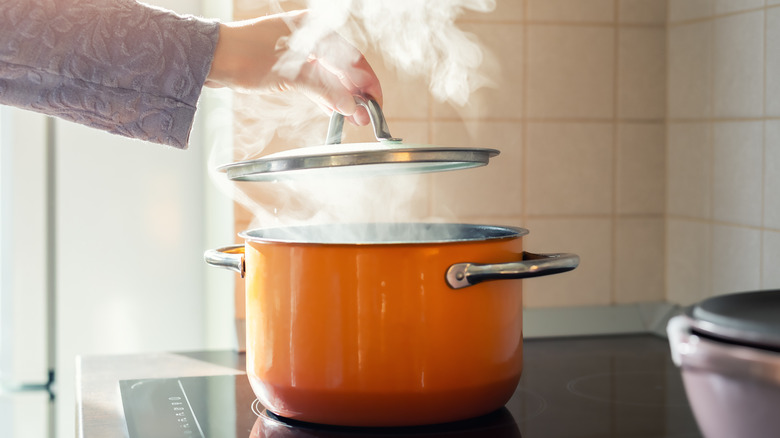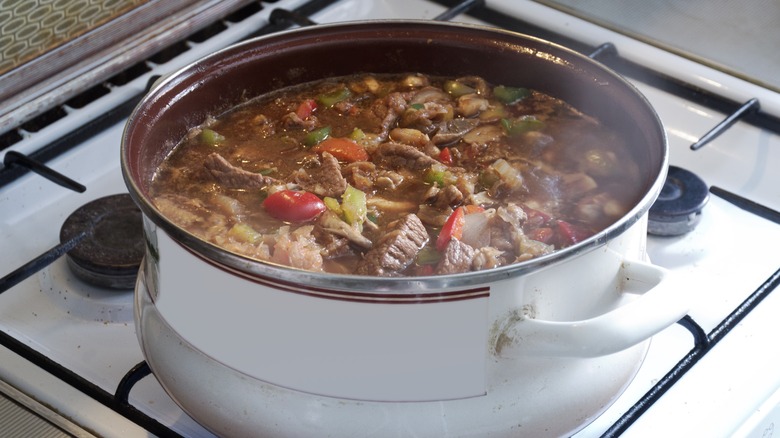What Actually Happens To Soup If You Boil It
If you've ever made soup at home to warm up during the chilly winter months, you know that many recipes ask you to simmer the pot, sometimes for an hour or more. Recipes like chicken tortilla soup, beef and vegetable stew, and white chili all require the ingredients to cook at a low heat so the flavors can meld together (via Midwest Living). In particular, brothy soups like matzoh ball benefit from a long simmering time, and chicken stock typically needs to simmer for up to eight hours, according to The New York Times.
So how do you know if you're simmering soup the right way? According to Maytag, a simmer is accomplished when a liquid cooks between 185 to 205 degrees Fahrenheit, just below a boil. You'll be able to tell if you're at the right spot because the bubbles rising to the top will be small, and they'll mostly stay underneath the liquid's surface.
With hours-long simmering times, it's tempting to turn up the dial on your stove and bring your pot to a boil. But before you do so, it's important to understand how that will affect the ingredients in your soup.
Boiling soup leads to mushy veggies and tough meat
Since boiling food brings it to a higher temperature, it's easy to think that it's a good way to cook your soup faster -– but boiling soup can backfire. According to Patch, boiling soup can make your vegetables fall apart, and your meat overcooked and tough. Boiling causes rapid movement for the food in the pot, which allows your ingredients to bump into each other and start to break down, Bake Instinct explains. While a simmer creates enough movement to release flavor, it's still slow enough that your ingredients will remain intact.
Boiling can also reduce too much liquid, which isn't what you want when it comes to soup (via Boss the Kitchen). While some recipes may tell you to bring your pot to a boil, they'll likely say to immediately turn the temperature down to a simmer afterward. In addition to tenderizing tougher foods, like meat or dried vegetables, simmering a soup gives the ingredients time to absorb the deliciously seasoned broth, according to The Kitchn. And to help everything season evenly, Patch recommends cutting your meat and vegetables into evenly sized pieces.
So although it may sound appealing to quickly boil your soup, try to resist temptation and leave it at a simmer — it will be worth the wait.

